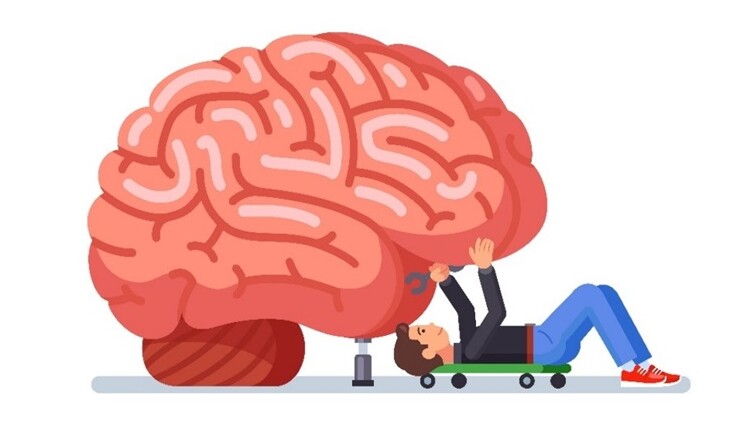Fibromyalgia & Psychological Trauma Link – Medical Health Alert
Author:
• Tim McGuinness, Ph.D. – Anthropologist, Scientist, Director of the Society of Citizens Against Relationship Scams Inc.
Connection Between Psychological Trauma And Fibromyalgia Is A Complex
The connection between psychological trauma and fibromyalgia is a complex and multifaceted one, with growing research suggesting a significant link between the two!
Here’s what is known about the link Between Fibromyalgia and Psychological Trauma
Evidence for the Fibromyalgia and Psychological Trauma Connection
- Prevalence: Studies show significantly higher rates of various types of psychological trauma, including childhood abuse, emotional neglect, relationship scams and other crimes, and PTSD, in individuals diagnosed with fibromyalgia compared to the general population.
- Shared biological mechanisms: Both psychological trauma and fibromyalgia involve alterations in stress response systems, inflammation, and pain processing pathways. Trauma can lead to chronic stress, dysregulation of the hypothalamic-pituitary-adrenal (HPA) axis, and increased inflammatory markers, all of which are also implicated in fibromyalgia.
- Neuroimaging studies: Research suggests altered brain activity in regions involved in pain perception and emotional regulation in both psychological trauma and fibromyalgia patients.
- Treatment response: Some studies suggest that psychological trauma-focused therapies may improve fibromyalgia symptoms, further highlighting the potential connection.
Possible Explanations for the Fibromyalgia and Psychological Trauma Link:
- Neurological sensitization: Psychological trauma can lead to increased sensitivity in pain pathways, making individuals more susceptible to pain from various sources, including chronic widespread pain like fibromyalgia.
- Altered pain processing: Psychological trauma can alter how the brain processes pain signals, leading to heightened sensitivity and chronic pain perception.
- Dysregulated stress response: Chronic stress from Psychological trauma can disrupt the HPA axis and lead to increased inflammation, contributing to fibromyalgia symptoms.
- Genetic vulnerability: Some individuals may have a genetic predisposition for both psychological trauma and fibromyalgia, increasing the risk of developing both conditions.
It’s important to note that the connection between psychological trauma and fibromyalgia is not a simple cause-and-effect relationship. Other factors like genetics, physical health conditions, and lifestyle choices likely play a role in the development of fibromyalgia. Be sure to speak with your medical professional about this topic if you are concerned.
Implications for Treatment of Psychological Trauma and Fibromyalgia
Understanding the connection between trauma and fibromyalgia can inform a more holistic approach to treatment.
This may involve:
- Trauma-focused therapy: Addressing underlying psychological trauma can help individuals manage symptoms and improve overall well-being.
- Stress management techniques: Techniques like mindfulness and relaxation can help regulate the stress response and potentially reduce pain.
- Multimodal treatment: Combining pain management strategies like medication and physical therapy with psychological trauma therapies can provide a comprehensive approach to fibromyalgia.
If You are Living with Fibromyalgia and have experienced Psychological Trauma
It’s important to seek professional help.
A healthcare provider can assess your individual needs and recommend appropriate treatment options. Remember, you are not alone, and there are effective ways to manage both conditions and improve your quality of life.
More:
- National Fibromyalgia Association, FM and chronic pain (fmaware.org)
- PTSD: National Center for PTSD Home (va.gov)
- Trauma Recollection/Traumatic Flashbacks – 2023 (scamsnow.com)
- Anger & Self-Radicalization – Recovery Psychology 2023 (scamsnow.com)
- Fear Of Contagion: Why Scam Victims Are Harshly Judged And Blamed 2023 (scamsnow.com)
- Selective Amnesia and Scam Victim Psychological Trauma 2023 (scamsnow.com)
- Striatum – Psychology of Scams 2023 (scamsnow.com)
- Psychological Triggers/Emotional Triggers – What They Are And How They Work – 2023/2024 (scamsnow.com)
SCARS Resources:
- For New Victims of Relationship Scams newvictim.AgainstScams.org
- Subscribe to SCARS Newsletter newsletter.againstscams.org
- Sign up for SCARS professional support & recovery groups, visit support.AgainstScams.org
- Find competent trauma counselors or therapists, visit counseling.AgainstScams.org
- Become a SCARS Member and get free counseling benefits, visit membership.AgainstScams.org
- Report each and every crime, learn how to at reporting.AgainstScams.org
- Learn more about Scams & Scammers at RomanceScamsNOW.com and ScamsNOW.com
- Global Cyber Alliance ACT Cybersecurity Tool Website: Actionable Cybersecurity Tools (ACT) (globalcyberalliance.org)
- Self-Help Books for Scam Victims are at shop.AgainstScams.org
- Donate to SCARS and help us help others at donate.AgainstScams.org
- Worldwide Crisis Hotlines: International Suicide Hotlines – OpenCounseling : OpenCounseling
- Campaign To End Scam Victim Blaming – 2024 (scamsnow.com)
More ScamsNOW.com Articles
-/ 30 /-
What do you think about this?
Please share your thoughts in a comment below!
SCARS LINKS: AgainstScams.org RomanceScamsNOW.com ContraEstafas.org ScammerPhotos.com Anyscam.com ScamsNOW.com
reporting.AgainstScams.org support.AgainstScams.org membership.AgainstScams.org donate.AgainstScams.org shop.AgainstScams.org
youtube.AgainstScams.org linkedin.AgainstScams.org facebook.AgainstScams.org
One Comment
Leave A Comment
Important Information for New Scam Victims
- Please visit www.ScamVictimsSupport.org – a SCARS Website for New Scam Victims & Sextortion Victims.
- SCARS Institute now offers its free, safe, and private Scam Survivor’s Support Community at www.SCARScommunity.org – this is not on a social media platform, it is our own safe & secure platform created by the SCARS Institute especially for scam victims & survivors.
- SCARS Institute now offers a free recovery learning program at www.SCARSeducation.org.
- Please visit www.ScamPsychology.org – to more fully understand the psychological concepts involved in scams and scam victim recovery.
If you are looking for local trauma counselors, please visit counseling.AgainstScams.org
If you need to speak with someone now, you can dial 988 or find phone numbers for crisis hotlines all around the world here: www.opencounseling.com/suicide-hotlines
Statement About Victim Blaming
Some of our articles discuss various aspects of victims. This is both about better understanding victims (the science of victimology) and their behaviors and psychology. This helps us to educate victims/survivors about why these crimes happened and not to blame themselves, better develop recovery programs, and help victims avoid scams in the future. At times, this may sound like blaming the victim, but it does not blame scam victims; we are simply explaining the hows and whys of the experience victims have.
These articles, about the Psychology of Scams or Victim Psychology – meaning that all humans have psychological or cognitive characteristics in common that can either be exploited or work against us – help us all to understand the unique challenges victims face before, during, and after scams, fraud, or cybercrimes. These sometimes talk about some of the vulnerabilities the scammers exploit. Victims rarely have control of them or are even aware of them, until something like a scam happens, and then they can learn how their mind works and how to overcome these mechanisms.
Articles like these help victims and others understand these processes and how to help prevent them from being exploited again or to help them recover more easily by understanding their post-scam behaviors. Learn more about the Psychology of Scams at www.ScamPsychology.org
SCARS INSTITUTE RESOURCES:
If You Have Been Victimized By A Scam Or Cybercrime
♦ If you are a victim of scams, go to www.ScamVictimsSupport.org for real knowledge and help
♦ SCARS Institute now offers its free, safe, and private Scam Survivor’s Support Community at www.SCARScommunity.org/register – this is not on a social media platform, it is our own safe & secure platform created by the SCARS Institute especially for scam victims & survivors.
♦ Enroll in SCARS Scam Survivor’s School now at www.SCARSeducation.org
♦ To report criminals, visit https://reporting.AgainstScams.org – we will NEVER give your data to money recovery companies like some do!
♦ Follow us and find our podcasts, webinars, and helpful videos on YouTube: https://www.youtube.com/@RomancescamsNowcom
♦ Learn about the Psychology of Scams at www.ScamPsychology.org
♦ Dig deeper into the reality of scams, fraud, and cybercrime at www.ScamsNOW.com and www.RomanceScamsNOW.com
♦ Scam Survivor’s Stories: www.ScamSurvivorStories.org
♦ For Scam Victim Advocates visit www.ScamVictimsAdvocates.org
♦ See more scammer photos on www.ScammerPhotos.com
You can also find the SCARS Institute’s knowledge and information on Facebook, Instagram, X, LinkedIn, and TruthSocial
Psychology Disclaimer:
All articles about psychology and the human brain on this website are for information & education only
The information provided in this and other SCARS articles are intended for educational and self-help purposes only and should not be construed as a substitute for professional therapy or counseling.
Note about Mindfulness: Mindfulness practices have the potential to create psychological distress for some individuals. Please consult a mental health professional or experienced meditation instructor for guidance should you encounter difficulties.
While any self-help techniques outlined herein may be beneficial for scam victims seeking to recover from their experience and move towards recovery, it is important to consult with a qualified mental health professional before initiating any course of action. Each individual’s experience and needs are unique, and what works for one person may not be suitable for another.
Additionally, any approach may not be appropriate for individuals with certain pre-existing mental health conditions or trauma histories. It is advisable to seek guidance from a licensed therapist or counselor who can provide personalized support, guidance, and treatment tailored to your specific needs.
If you are experiencing significant distress or emotional difficulties related to a scam or other traumatic event, please consult your doctor or mental health provider for appropriate care and support.
Also read our SCARS Institute Statement about Professional Care for Scam Victims – click here
If you are in crisis, feeling desperate, or in despair, please call 988 or your local crisis hotline – international numbers here.
More ScamsNOW.com Articles
A Question of Trust
At the SCARS Institute, we invite you to do your own research on the topics we speak about and publish. Our team investigates the subject being discussed, especially when it comes to understanding the scam victims-survivors’ experience. You can do Google searches, but in many cases, you will have to wade through scientific papers and studies. However, remember that biases and perspectives matter and influence the outcome. Regardless, we encourage you to explore these topics as thoroughly as you can for your own awareness.

























![NavyLogo@4x-81[1] Fibromyalgia & Psychological Trauma Link - Medical Health Alert - 2023](https://scamsnow.com/wp-content/uploads/2025/04/NavyLogo@4x-811.png)
![scars-institute[1] Fibromyalgia & Psychological Trauma Link - Medical Health Alert - 2023](https://scamsnow.com/wp-content/uploads/2025/04/scars-institute1.png)

![niprc1.png1_-150×1501-1[1] Fibromyalgia & Psychological Trauma Link - Medical Health Alert - 2023](https://scamsnow.com/wp-content/uploads/2025/04/niprc1.png1_-150x1501-11.webp)
This is quite a connection! Thank you for this article!